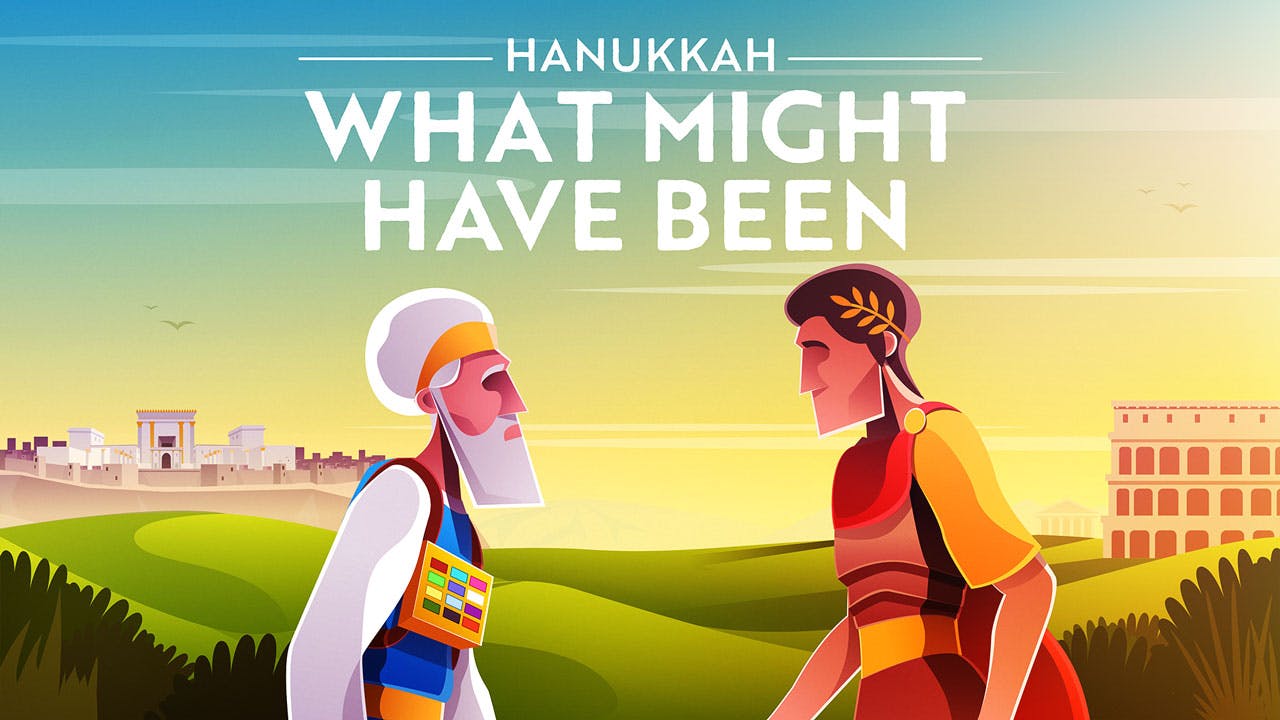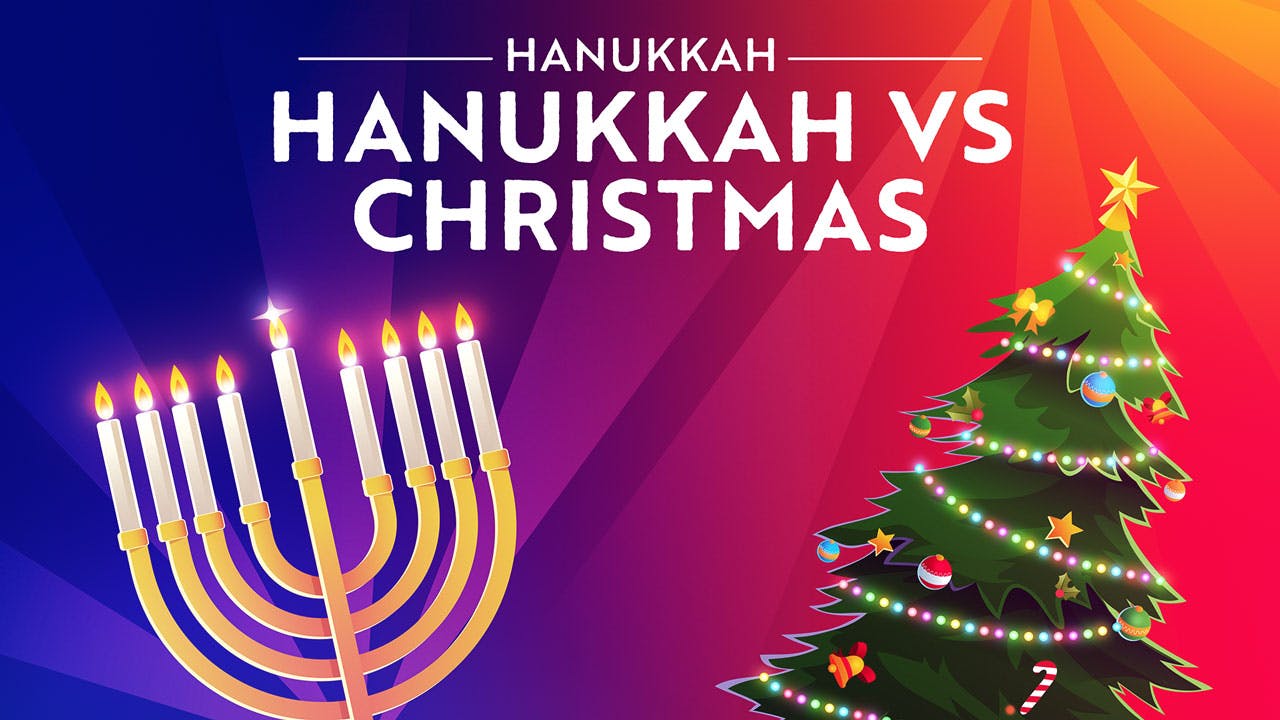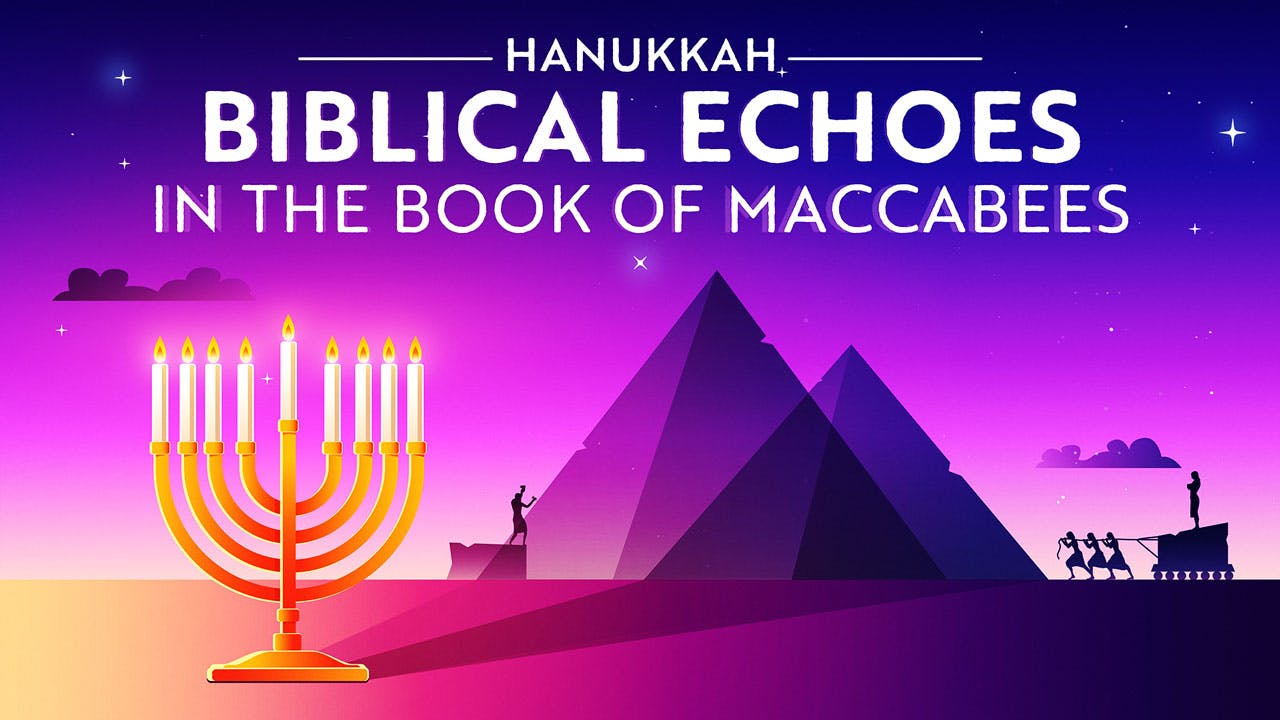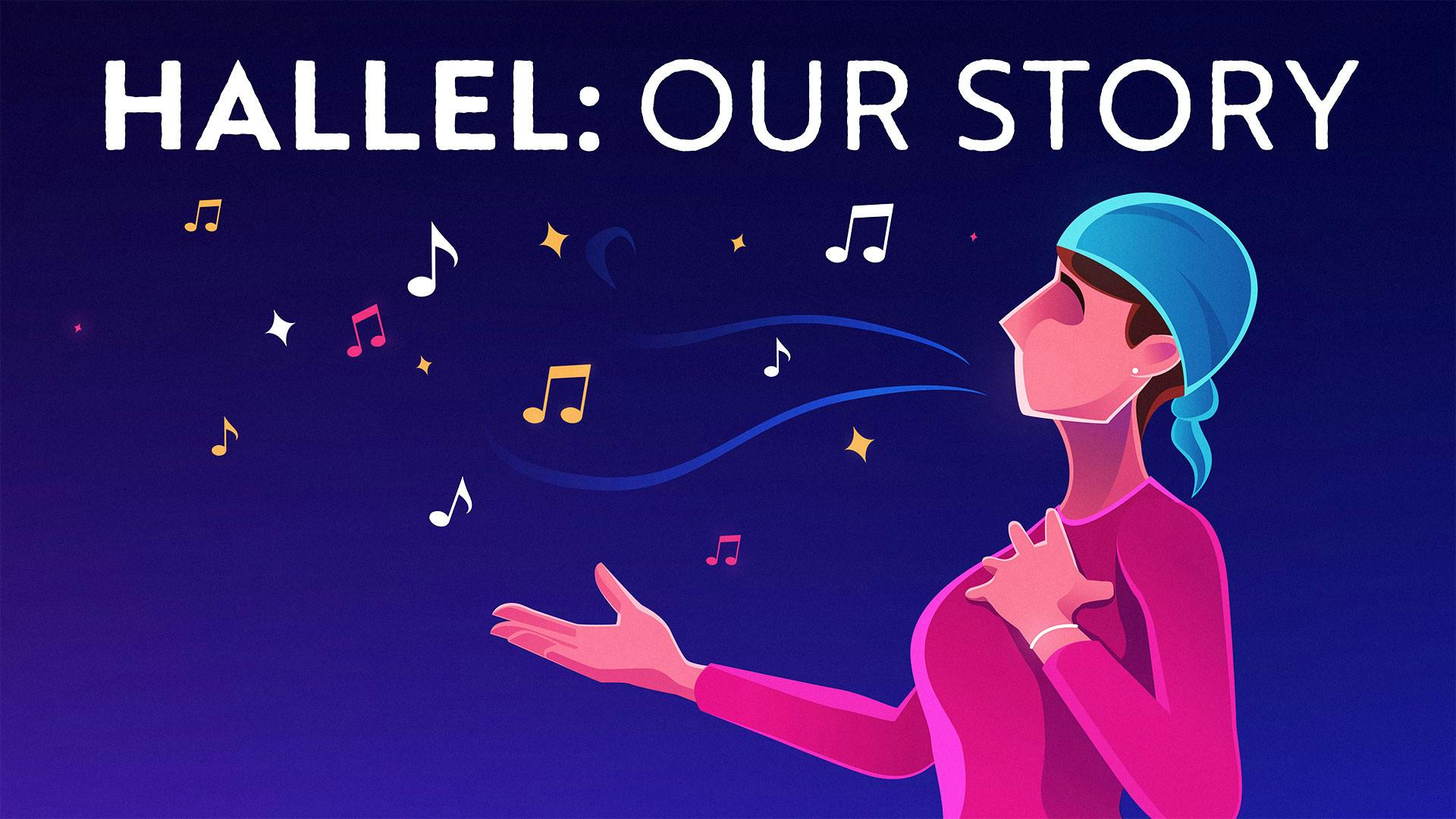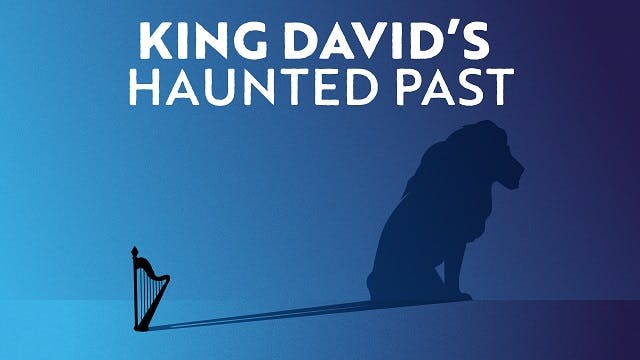Hanukkah Videos
Important dates: December 14-22, 2025
Hanukkah Podcasts
Printable Guide
Hanukkah Family Activity Booklet
In the Hanukkah video Why Celebrate The Oil But Ignore The War?, Rabbi Fohrman explores the miracle of Chanukah, to illuminate (pun intended!) how God is always with us, even during the darkest of times. Get the most out of this video by watching it as a family and enjoying the activities in this booklet together.
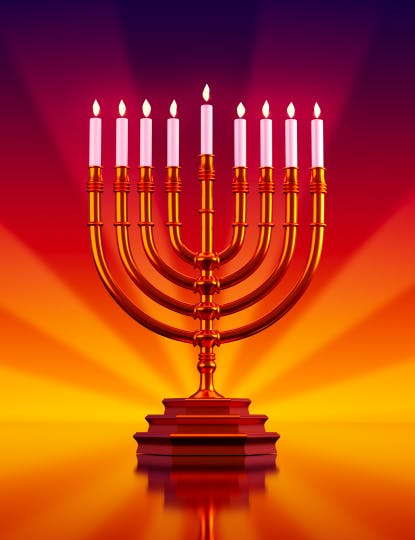
Hanukkah Dvar Torah

The Festival Of Jewish Values: How To Celebrate Hanukkah In A Changing World
101 Guide
If Hanukkah celebrates the Maccabees' rejection of Greek values, how are we meant to observe Hanukkah today if our Jewish values have blended with outside values, like art and literature?

A 101 Guide To Hanukkah
101 Guide
Hanukkah – also spelled Chanukah – is celebrated for eight days every winter starting on the 25th of Kislev. We light the Hanukkah Menorah (the Chanukiyah) each night to commemorate the miracles of this holiday. What is Hanukkah?
About Hanukkah
Sometimes called the “Festival of Lights”, Hanukkah is joyous holiday. But the festive customs of Hanukkah belie the holiday's darker origins, which take us back to a war between the Jews and the Greeks.
When Alexander the Great conquered the Middle East towards the end of the fourth century BCE, Israel became a part of his vast empire. Several decades later, after the empire had broken apart, Israel fell under the rulership of Antiochus IV, who radically promoted Greek culture. Antiochus outlawed many Jewish practices, including circumcision, and ransacked the Temple in Jerusalem. Several Jews, first led by a man named Matityahu and later led by his sons, led a revolt against Antiochus, and, despite the vastly superior force and training of the Greek army, the rebel Jews were able to defeat their foes.
In the aftermath of the victory, the Temple was cleaned up and rededicated. However, the Talmud tells us that when the people tried to find pure oil with which to light the Menorah—a holy candelabrum, which was a part of the daily service in the Temple—only one small sealed jug could be found, enough to last one day. Miraculously, the oil lasted until a new stock was ready, eight days later.
This small miracle demonstrated to the Jews that God was supporting their efforts to reclaim Israel, and that their astounding victory over the Greek army was, indeed, a miracle as well.
The holiday of Hanukkah, which literally means “inauguration” or “dedication,” celebrates several aspects of this story:
- the Jews’ victory over the Greeks
- the miracle of the oil during the rededication of the Temple
- the restoration of Torah Judaism as the law of the land in Israel.
Jews today commemorate these events by lighting candles for eight days, and many have the custom to eat oily foods as well, such as latkes or donuts. But some find it perplexing that the holiday seems to celebrate the miracle of the oil, more than the military victory. Others find it odd that Hanukkah has come to be the “Jewish Christmas,” or the “other” winter holiday. But Hanukkah is unique and unlike any other holiday. The Hanukkah videos above explore what was so miraculous about the holiday of Hanukkah.
Aleph Beta’s Favorite Hanukkah Videos

SHOSHANA BRODY, Art Director
One of my favorite courses has to be "The Book Of Maccabees Illuminated." It focuses on the actual Book of Maccabees, a book that I didn't know existed until Rabbi Fohrman brought it up, and it gives you a real first-person account of what happened during Hanukkah. It's amazing to hear the voices of the people who lived through all the persecution and the fighting that was going on then. Growing up, Hanukkah was always a cute, G-rated story – the Jews couldn't keep some commandments, the Greeks tried to convert everyone, they played dreidel, they won, we eat! The way this course talks about Hanukkah – and especially the parallels to the slavery in Egypt – turned it into a real, intense, grown-up holiday for me.

DANIEL LOEWENSTEIN, Scholar
Did you ever notice that so many Jewish sports teams are named after the Maccabees, and yet the original Maccabees fought against the inventors of competitive sports? Ironic, no? There are so many things in our lives today that are contributions of ancient Greece, and for me at least, sometimes that makes Hanukkah a confusing holiday. On the one hand, we're supposed to be celebrating defeating and rejecting Greek culture, but on the other hand, it's still part of us – and it doesn't even seem that bad. That's why I really appreciated the course "The Hanukkah That Might Have Been" – it deals exactly with this issue, and it shows how the values of Judaism and Ancient Greece don't have to be an either-or. There's a wrong way to think about Greek virtues like beauty, but there's a Jewish way to think about it, too.

BETH LESCH, Head of Research
My favorite Hanukkah course is “Minor Miracle?” Rabbi Fohrman makes the claim that there is a precedent for the Hanukkah miracle which appears in the Torah. I know, it sounds ridiculous, right? Because Hanukkah is a rabbinic holiday; it happened hundreds of years after the close of the Bible. But when you watch the video, you’ll see what he means. It’s not about bible codes or gematriya (numerology) or anything like that – it’s just a good, close reading of the verses. It’s the kind of video that makes you think: “How did I not see that?? It was staring me in the face the entire time.”

JENNIFER RIVERA, Customer Happiness
You may have noticed that Hanukkah isn’t the only holiday that is celebrated in the winter. Many religions, even pagan ones, celebrate a “festival of light” during this time of year — and it sometimes seems that Hanukkah bears an uncomfortable resemblance to these other holidays. Rabbi Fohrman tackles this question head-on in the course “Aren’t These Winter Holidays Suspiciously Similar?”, turning to the Talmud to understand Hanukkah’s origins. Through that story, I walked away with a clear sense of what makes Hanukkah unique. But more than that, I appreciated the personal message that Rabbi Fohrman brings out in the course — one which is relevant for anyone who has ever questioned whether God is present in their darkest times.
